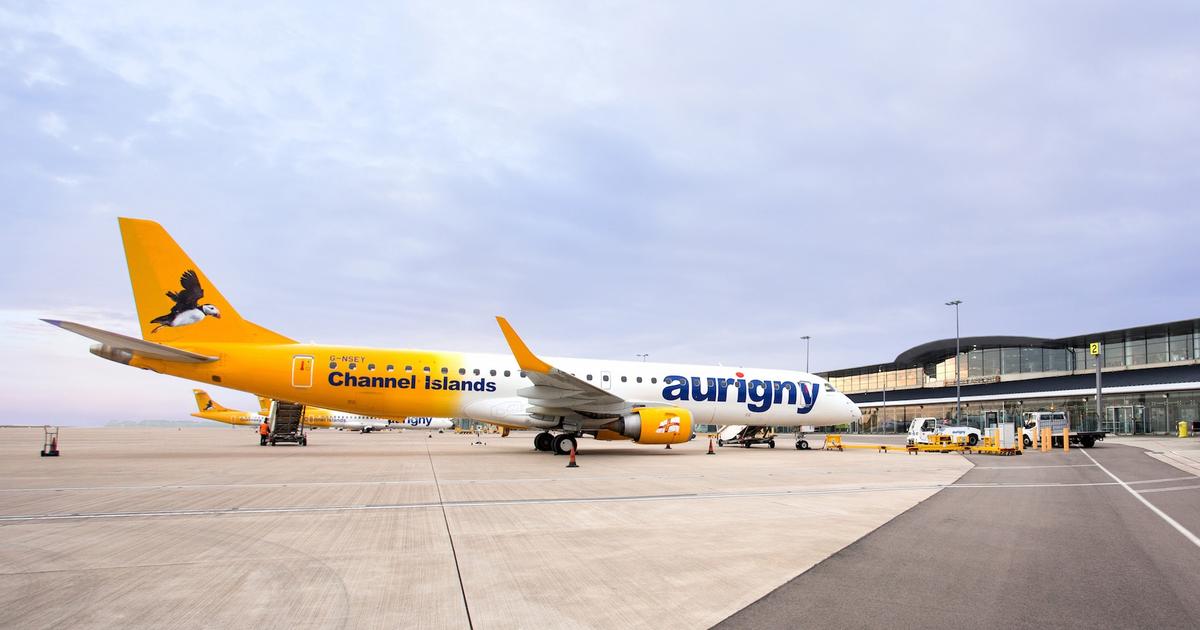The veteran fisherman - tanned skin, sea lion sideburns and hair blowing in the wind - draws an imaginary map on a harbor wall and says: "We are boxed in a corner."
Later, at his home in the old quarter of Granville, a municipality of 12,500 inhabitants on the Normandy coast, the fisherman Didier Leguelinel, now retired and today a local fishing leader, unfolds the real map, a cartography of red, yellow, blue lines .
"Jersey", he says, "blocks all horizons in this corner."
At the Port of Granville, geography was never an elective.
Those who went out to fish knew, from time immemorial, that they would soon run into Jersey, the island dependent on the British Crown planted a few dozen miles off the French coast, like an aircraft carrier, or a toll, that blocks the exit to the oceans.
15 days ago, the fishermen learned another lesson: that of geopolitics.
What happened on May 6 in front of the port of Saint-Hélier, the capital of Jersey, is still a matter of discussion in Granville and Jersey.
Was it a protest like so many in France?
A staging between protest and jingoism?
Or could it lead to something more serious?
Fifty ships left Granville and other ports in the early hours of that Thursday for Jersey.
A few days earlier, Jersey had issued permits to fish in its waters, a new system after the United Kingdom's departure from the European Union on January 1, 2021, invalidated the old agreements.
French fishermen discovered, to their surprise, that, with Brexit, they could no longer fish as many days as before.
Or conditions were imposed on them - on authorized species, for example - that disrupted what, in business terms, would be called the business model.
The dispute became a matter of State.
The French government threatened to halt negotiations in Brussels for British banks' access to the EU market and also to cut off electricity to the island.
And the fishermen stood before Saint-Hélier.
What some English tabloids called "the battle of Brexit" had just unleashed.
British Prime Minister Boris Johnson deployed two Royal Navy patrol boats, HMS Tamar and HMS Severn.
Paris sent hers, Athos and Thémis.
The showy epic, the papier-mâché set of a Trafalgar battle, was not up to the task of what was still a technical matter.
In the afternoon the fishing boats returned home.
“We didn't want to mess it up!” Defends Paul Grosse, a twenty-something who participated in the protest, while having a few beers in a cafe in the port of Granville with his gang of fishermen.
"What we wanted was to show that we were there."
The Foreign Minister of Jersey, Ian Gorst, declares to EL PAÍS by videoconference: “When they threatened to block our port, we had to take it seriously: 95% of our products are imported through the port of Saint-Hélier.
In the same way, we understand that a peaceful demonstration is an appropriate way to make one's voice heard, and that day it was a peaceful demonstration ”.
After the May 6 incident, a truce was imposed, and Jersey granted what Gorst calls "an amnesty."
Until July 1, French boats will be able to fish in Jersey waters.
Meanwhile, the Foreign Minister explains, talks have been held between Brussels and the British Government to clarify future access conditions for Norman and Breton fishermen.
“We expected things to be difficult.
What happened is that the bureaucracy involved in the trade agreement [between the UK and the EU] inflamed sentiments in Normandy and led to disproportionate threats, ”says Gorst.
"Now we have turned the page and we can face the technical issues to reach an agreement, because that is how we will move forward, and not with political rhetoric."
The truce is precarious.
Ludovic Bouchart, skipper of the Alizée III and with 25 years fishing for sea bream knows it well.
On Tuesday at 8.30 a.m. he was in Jersey waters.
In theory it was allowed.
He has a license, although only to fish 27 days instead of the 80 before Brexit.
And he says he had the approval of the French authorities.
More information
Post-Brexit fisheries dispute raises tension between Paris and London
When he had been fishing for an hour, a Jersey boat appeared first.
A few minutes later, a boat from the island's fishing authority arrived and forced him to leave because it was a protected area.
“Jersey told me, 'This is our house.
Here we enforce the law, '"recalls Bouchart on the Granville quay.
So I didn't insist.
I took out the net and left ”.
The fishermen and vendors of Granville, in response, denied the right of Jersey vessels to sell their wares in their port.
In Granville, Europe's maritime border, Brexit is not an abstraction: from the Jersey wall it looms on the horizon and the technicalities of the trade agreement with London have effects at the street level.
The mayor, Gilles Ménard, points out that 800 jobs, direct and indirect, and hundreds of families depend in his town on fishing, and, if access is cut off, the future of the sector would be in jeopardy.
"If we can't get what was there before [Brexit], we have to take strong action that will make Jersey react," says Ménard. "If it is necessary to cut off the current, it will have to be done."







/cloudfront-eu-central-1.images.arcpublishing.com/prisa/W3H32IH2DBCPRBEVTMH3MKVBNI.jpg)

